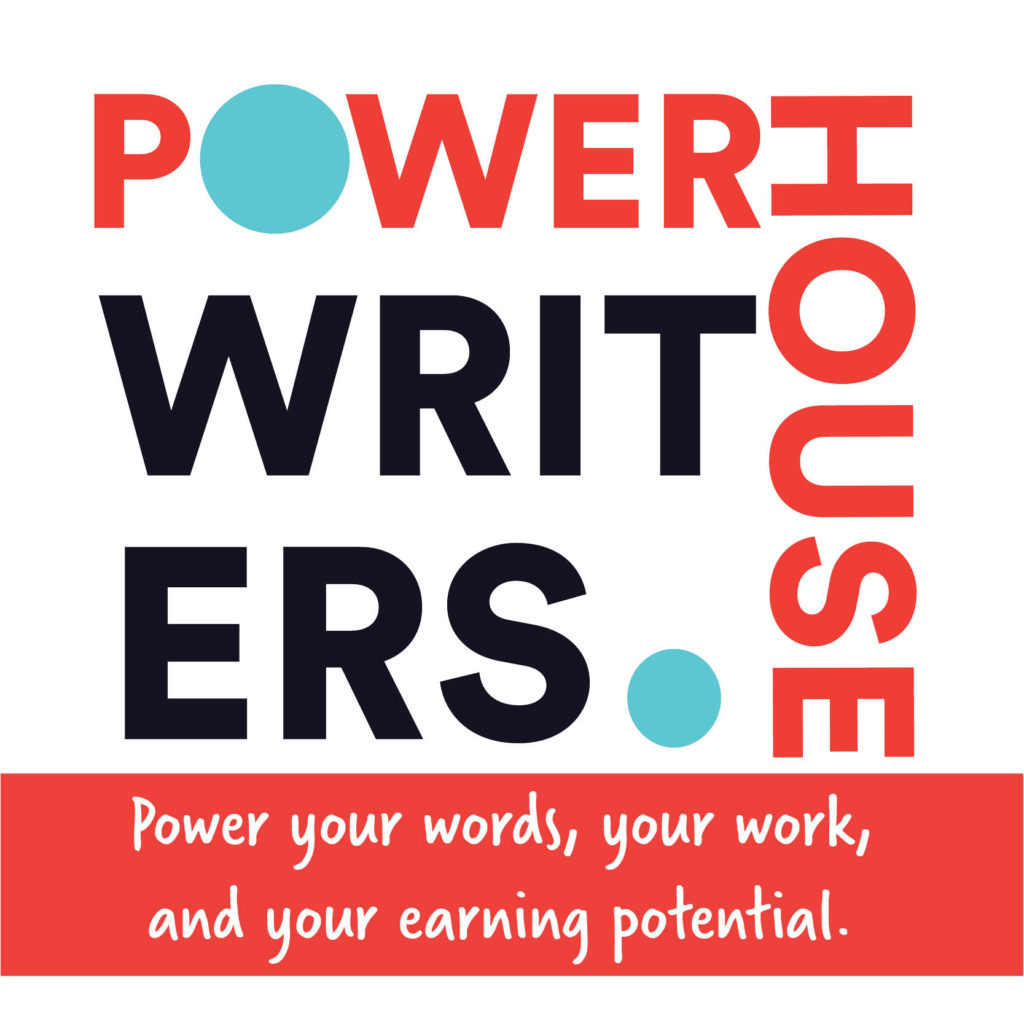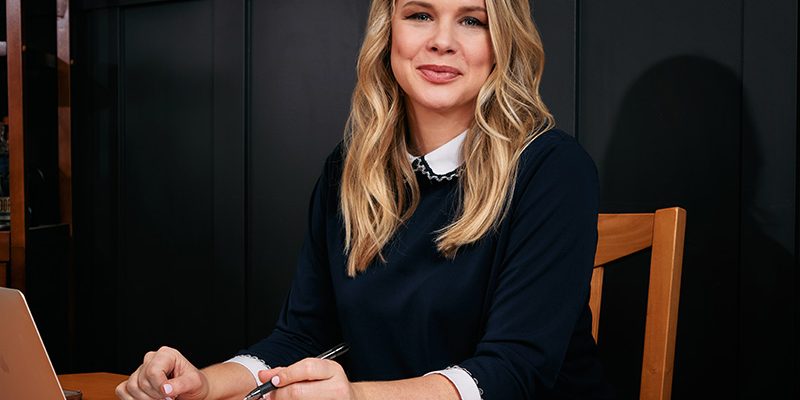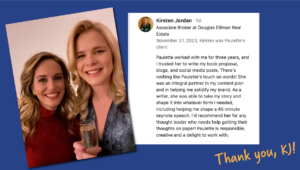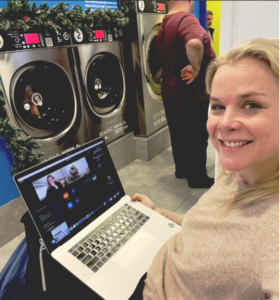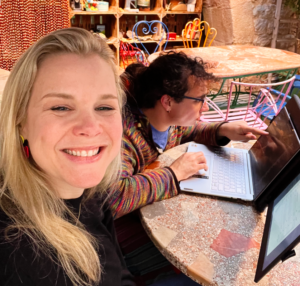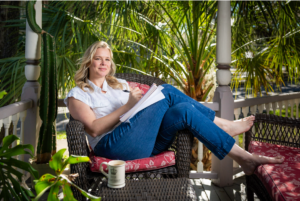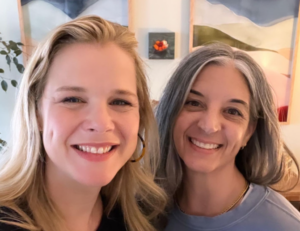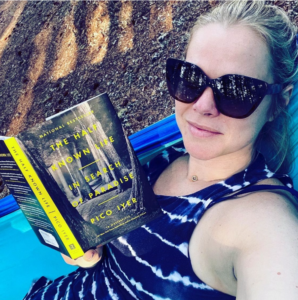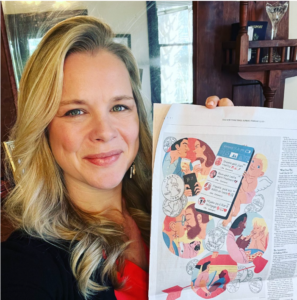On a drive home from the Oregon coast, where I spent New Year’s with Art, I made him play writing with me. Notebook open on my lap, I was working on a satire piece I wanted to get to McSweeney’s when they reopened on the 3rd. “Introducing Sarah Connor’s Apocalypse Fit,” it was called, and I asked him to help me think of another word for cyborg.
“So wait,” he asked, trying to orient himself to what the project was, “are, like, other people doing these?”
“Yeah, like all the time, I guess,” I said.
“What’s the motivation?”
I laughed. What a great question. McSweeney’s pays $40, which would probably work out to $4 an hour, and if this piece doesn’t get accepted there, I’ll likely send it somewhere that doesn’t pay at all, and if they don’t take it, it will just sit in a file on my computer with so many other stories.
“This is just what comes bursting out of me,” I said.
I like it. I like it when a line comes together and my eyes shoot open and I laugh. I like it when I think of the perfect word. As Gloria Steinem said, “Writing is the only thing that when I do it, I don’t feel I should be doing something else.”
I was on vacation, and I was playing.
Why am I doing this?
Always a good question to ask. Yet when you write both for the love and also professionally, as a way to support yourself, the question can get murky.
I can tell you for a fact that my worst writing job is my novel. The hours suck. And the pay? Criminal. Years of work, and I have made exactly zero dollars. I should quit, right? Why don’t I?
Because there’s another realm by which we measure our writing work. The appeal.
Writing my novel is the kind of work I became a writer to do.
But unfortunately, when I go to the grocery store to try to feed myself, or when I want to live in a house, they demand cold hard cash. How rude. I just want to write, you turds. But there’s no place I’ve found that will let me live without consideration for the amount of income I produce. So I’ve resigned myself to the fact that I have to make money.
Appeal and pay. These are the coordinates of my writing work.
Would you do this writing work?
It’s a question the professional writer gets asked often. Here’s how I answer.
Step one: Check the bank account.
If my bank account makes me feel like “Oh shit,” then yes, most likely I’ll do whatever work someone is asking me to do, unless it’s free or an insulting rate, like 10 cents a word.
If my bank account makes me feel like I can sail through the first of the month without transferring rent money over from my 401(k), then I have more options.
I love options! Options let you make choices you like to make, rather than ones you have to make. Good ways to give yourself options are to live below your means (something I need to work on, right after this $15 glass of eggnog). It also helps to market your services intentionally, so you have lots of potential offers to choose from.
Step two: think about how much I want to do it
Let’s look at what I mean by appeal. What a vague word! That’s because appeal can take so many forms.
The desire to work with someone.
Recently Joe reached out to see if I’d like to write for him. I love Joe! We met at a conference a few years ago and had a rowdy night out with the crew. I knew it would be a fun job.
The desire to get a byline.
The New York Times could ask me to write about the bylaws of the local chapter of tax accountants, and by god I would do it. Why? Because nothing hits like the Gray Lady. Just seeing my name in that font makes me feel like a real live writer.
Respectable bylines also serve as social proof that you can get the job done and help other clients trust you enough to give you work.
The desire to write about a topic.
There’s an art magazine that pays me 16% of the rate I ask corporate clients for, and I take it. Because I love interviewing artists and writing about art. It’s not the kind of passion project that my novel is, so I don’t know if I’d do it for free, but it’s also not the corporate writing that makes me want to press my thumbs into my eyeballs.
The appeal can take so many forms, but the important thing is that you feel it, rather than calculate it. Only you can label something as low, medium, or high on the appeal scale.
Pay
Pay seems easy to calculate, but it’s pretty complex. Do you charge by the word, piece, or hour? How difficult is this client to work with (aka, should they be docked with a Pain-in-the-Ass tax?)
That’s why this scale is not numerical, but a general category you assign. The fun part is also that it shifts over time. What feels high to you in your first year of writing will eventually become medium and even low, as you work to bring more value to your clients and find better opportunities.
Mapping your writing work
Out of the murky waters I boiled it down to a simple 9-square chart, which helps me see where I’m at, where I want to go, and why I’m doing what I do.
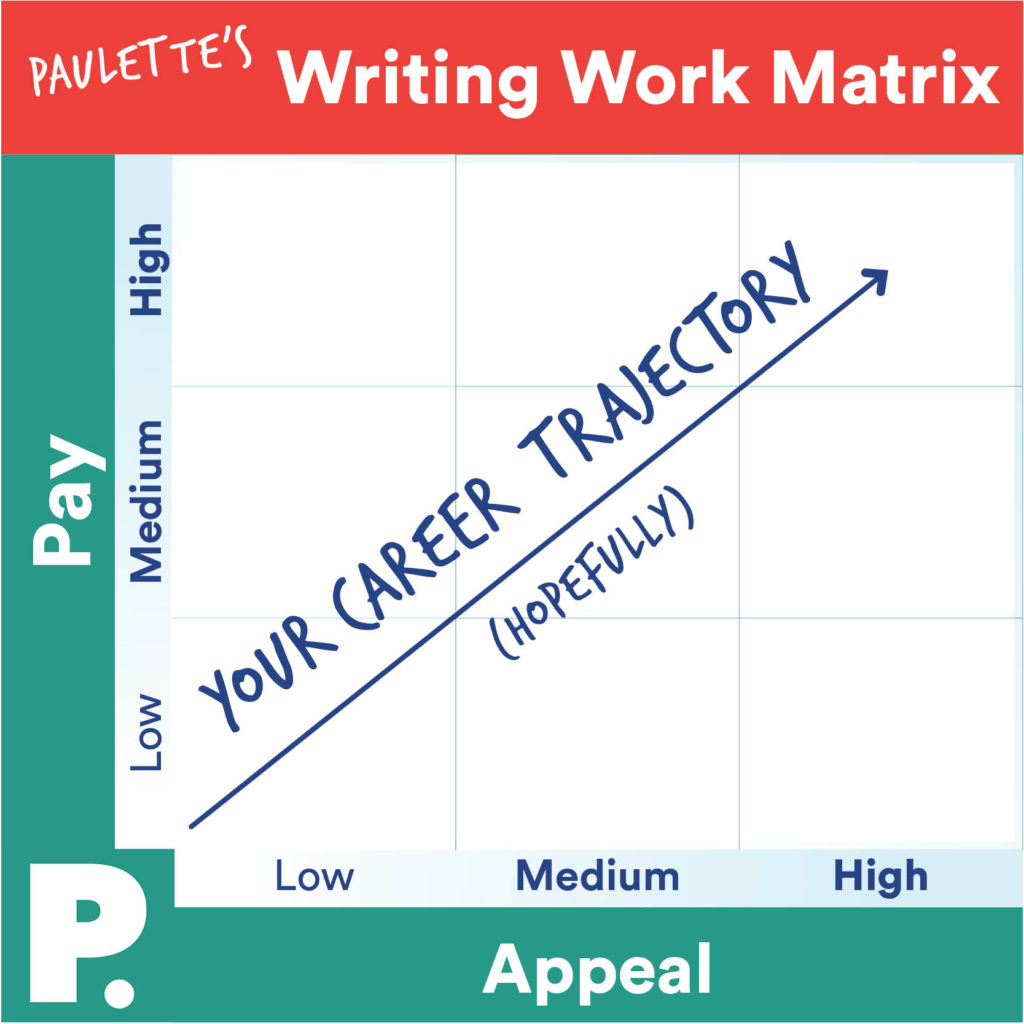
For each kind of writing, job, or opportunity, I rate the pay and the appeal as low, medium, or high, and that gives each an address on the Writing Work Matrix.
When I started, I did boring work for very little or no pay. As I progress, I want to do work I love more for more and more money. Six-figure auction price for my novel? Yes please! The New York Times paying me $1/word to write about jeans in Tokyo? That happened once!
You start at experience, you slog through the bill payers and the byline builders, you’ll always have your art, and you’ll hopefully get to the Dream Gigs.
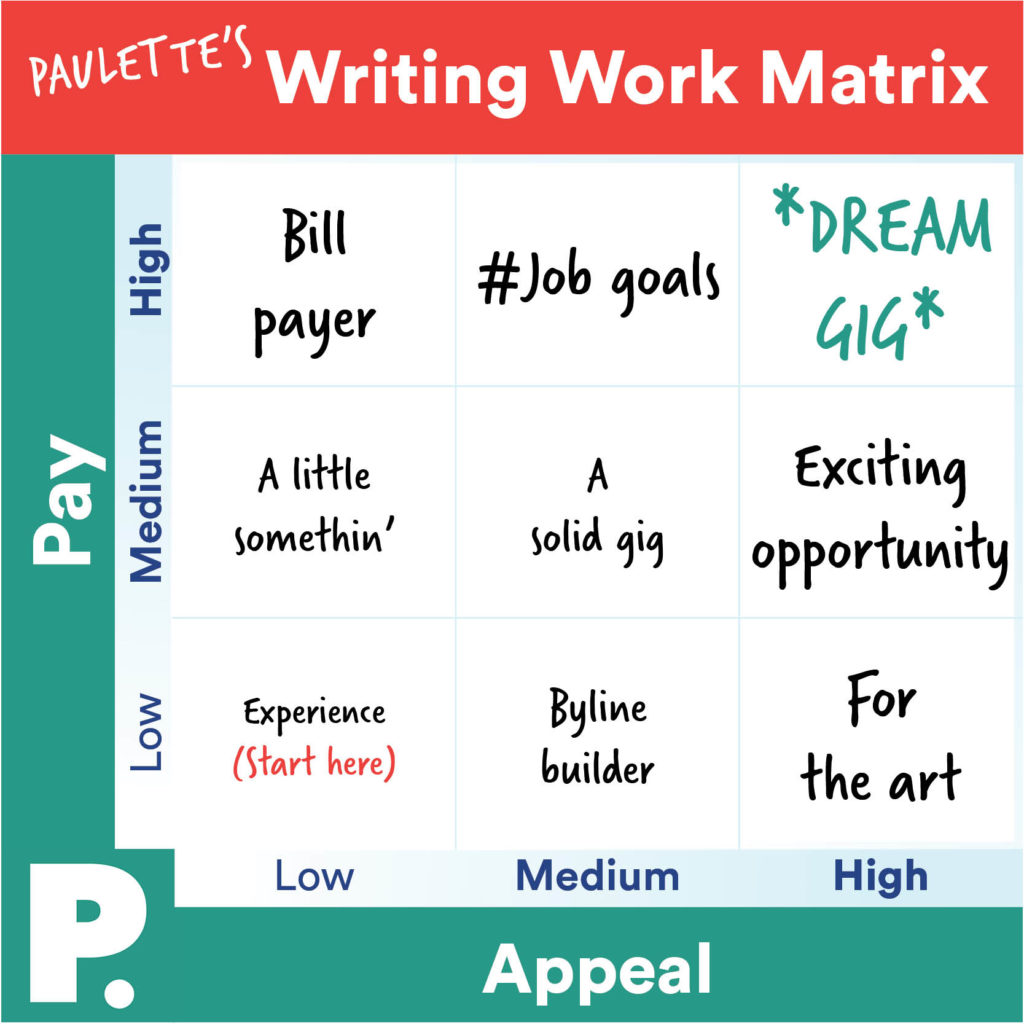
Of course, the reality is that even though I once got a gig writing about jeans for the Times, I then still had to work for the most boring science conglomerate’s website ever, to make that $$$. I used to read what I was writing out loud to my roommate, her cackling as she put on her makeup, unbelieving that such boring corporate speak was coming forth from this weirdo she lived with.
So the reality is that you will go up, you will come back down, a plague will hit and you’ll grab whatever work you can cling to, you’ll make a connection and get a chance at a dream gig. You’ll be living the wild writer’s life.
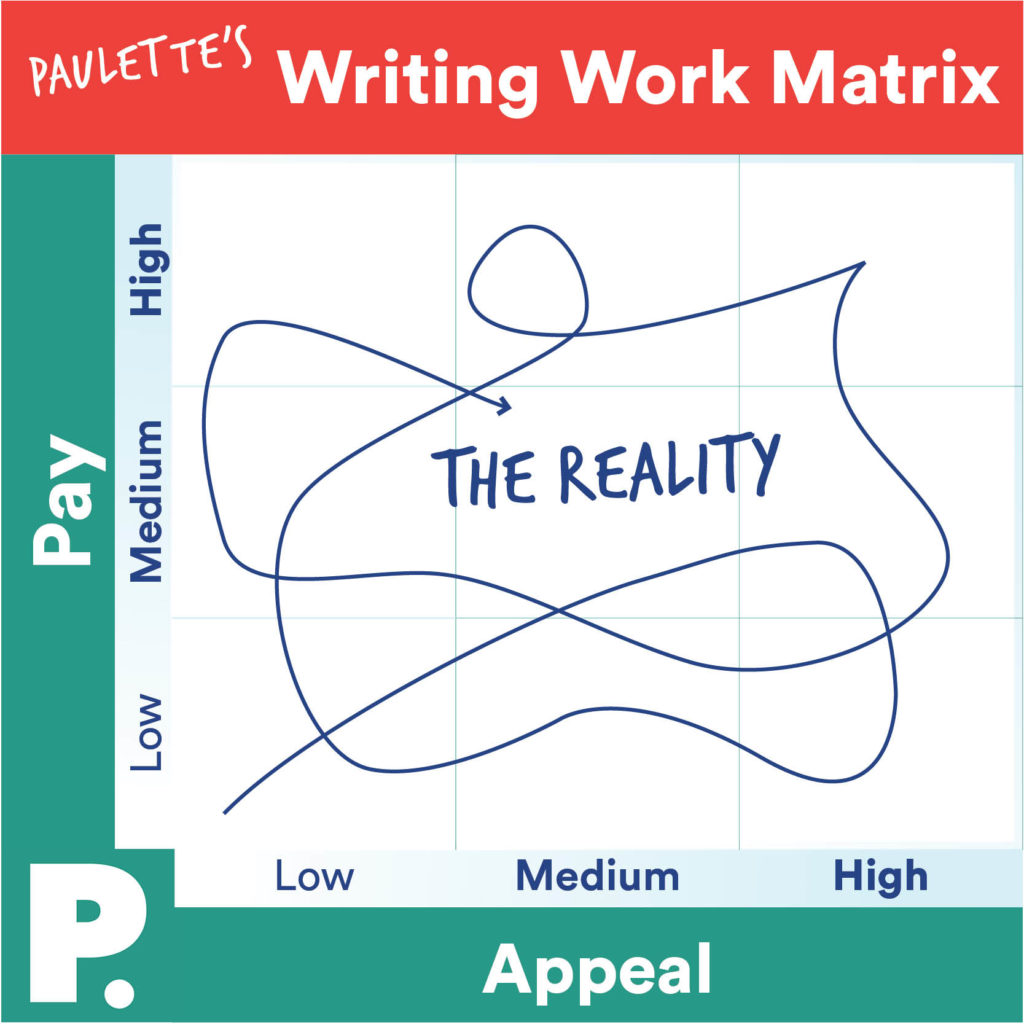
Where the Matrix really comes in handy is when you’re deciding what work to take next. A time will come when you have too much work to do, and you need to cut. Hooray! You want to start to leave behind the squares you don’t love or don’t need. Things you just did to get some experience. Gone. You can ask A Little Somethin’ kind of job to raise your rates to become a Bill Payer, and if they don’t, chau!
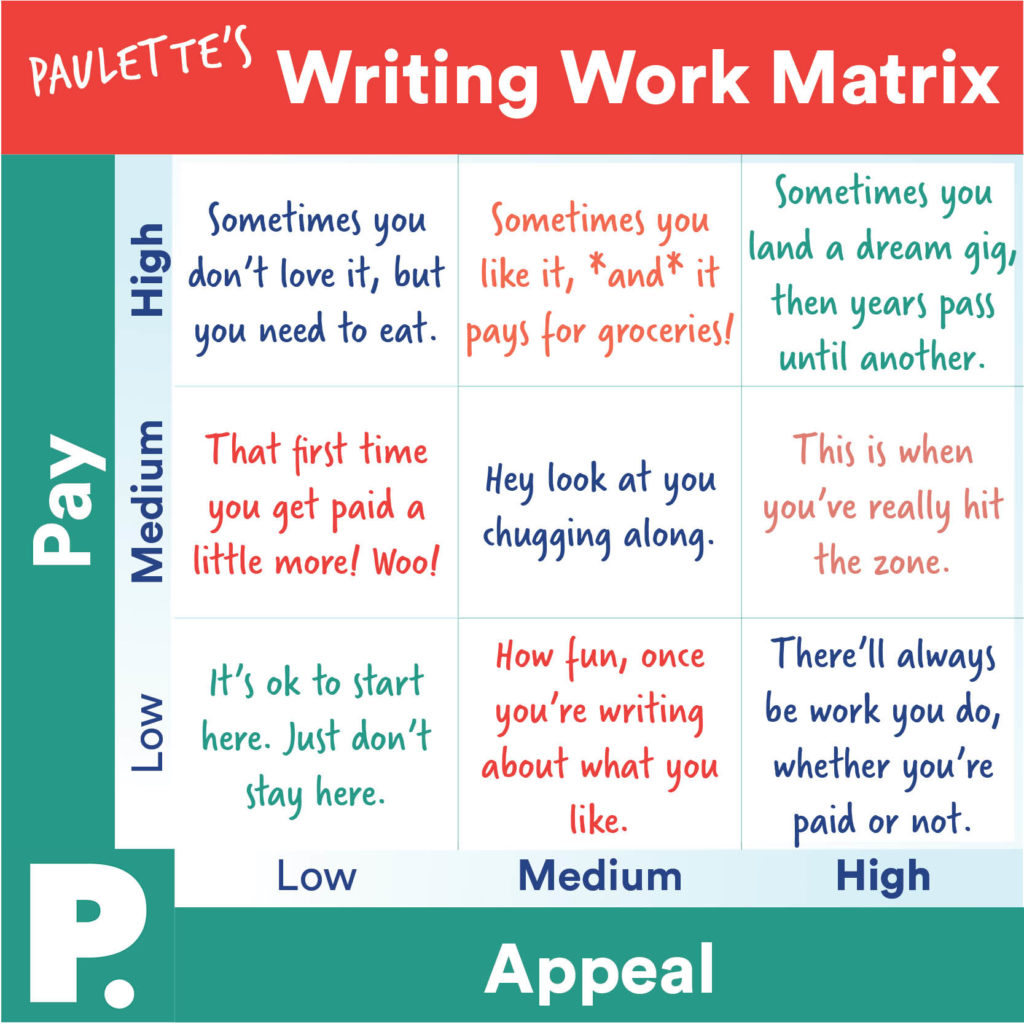
This year, I decided to leave behind that boring science gig, and to permanently retire the square of high pay, low appeal. If I wanted a job I hate that paid well, I’d just get a day job. But you know what, that square is waiting for me if I ever get financially desperate. Here’s hoping I never have to go back, but if I do, fuck it. That’s life.
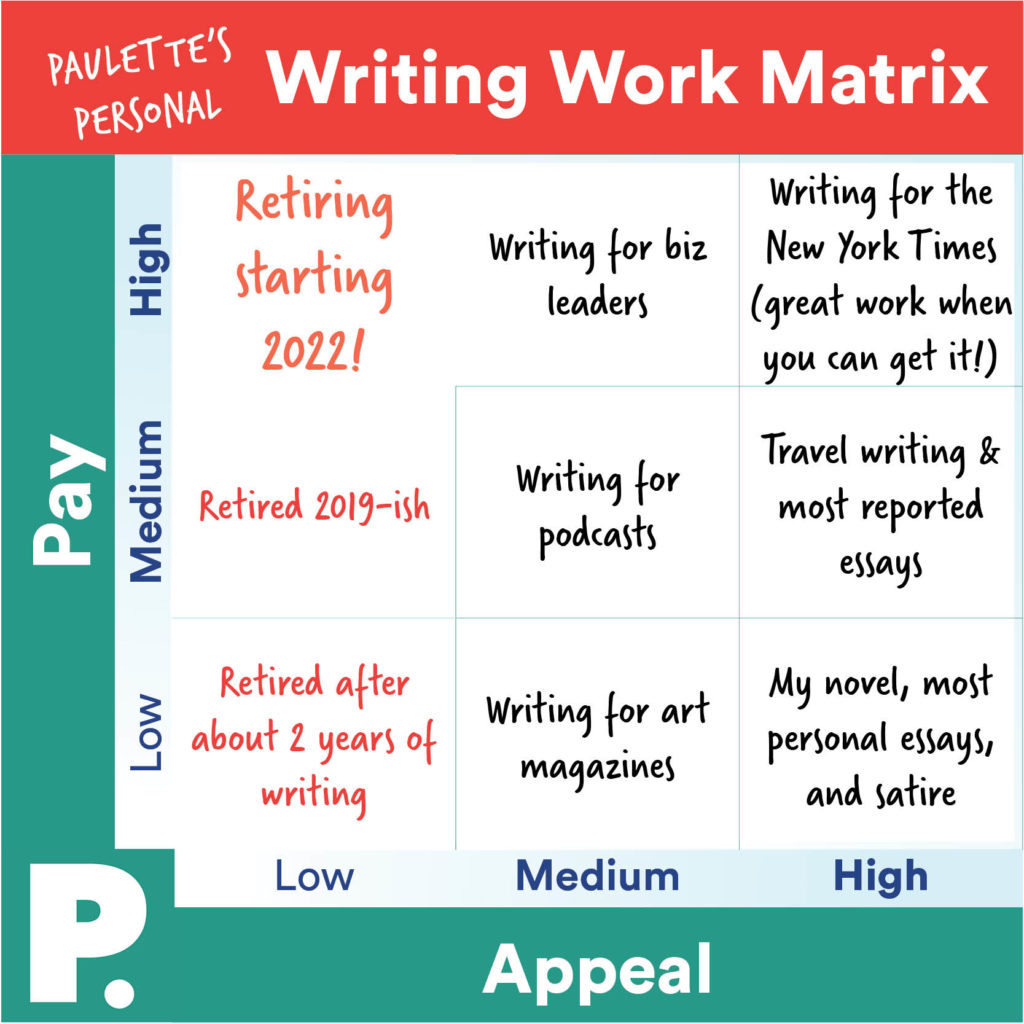
The matrix also acknowledges that no matter how much pay you eventually get, not every piece of work you do will be judged by that. That, in fact, would be considered a failure in my writing life.
To strive only for the top row, the highest pay, would be, for me, a form of selling out. I strive for the top row and right column, to be loving all the work I do, to get paid in the form of money and also in the form of joy. To take care of myself and also stick to my original artistic vision for my life, namely, sitting on a rock in a forest on the other side of the world, taking notes about how the frogs sound at sunset.
The place we want to get to is the top row and the right column. Trying to get paid more, and have more fun. That’s what my new coaching program, POWERHOUSE Writers, is all about.
If this is the kind of thinking you’re into, click here to get more info!
